
Teacher Ye Ziwei of our school was promoted to professor
"Professor Ye, congratulations on your accelerated promotion. May you thrive in our culture of sincerely cherishing, nurturing, attracting, and deploying talent. Pursue interdisciplinary integration of new liberal arts, agricultural sciences, and engineering, conduct impactful research serving agriculture-rural-farmer issues and China’s agricultural modernization, uphold moral education and the 'red gene' legacy, and grow into a ‘Great Mentor’ guiding students in learning, service, and character."
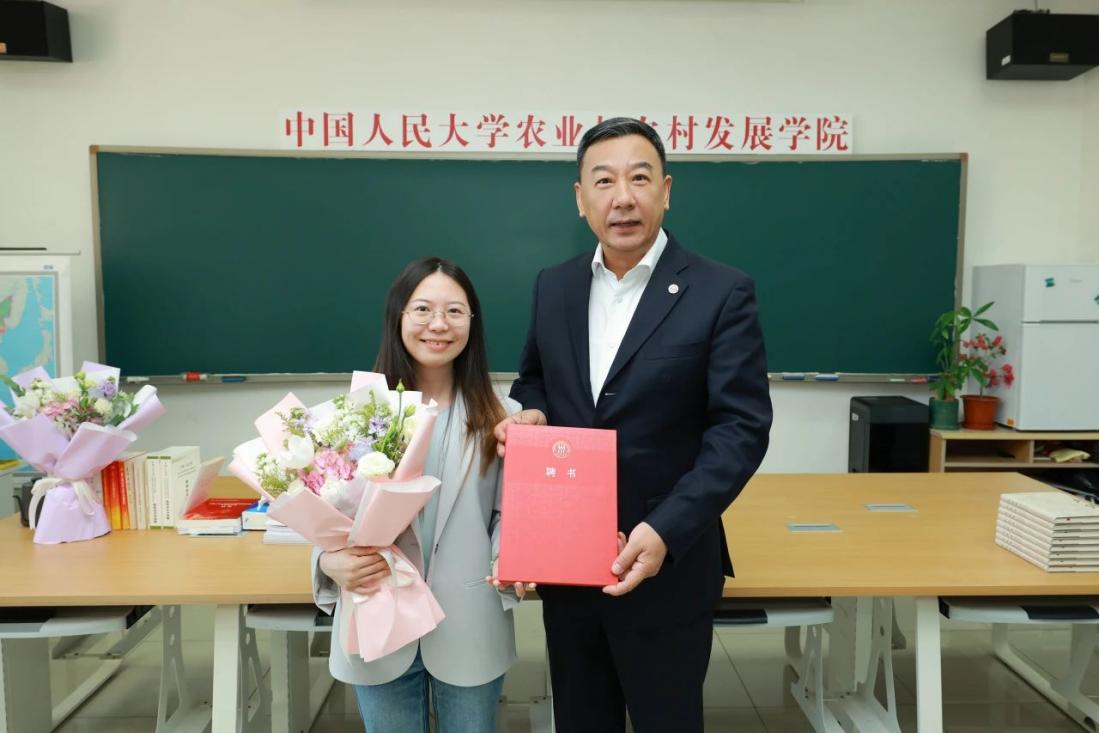
On the afternoon of April 2nd, Zhang Donggang, secretary of the Party Committee of Renmin University of China, specially came to the School of Agricultural Economics and Rural Development to present a letter of appointment to Ye Ziwei, who was promoted to professor by special promotion.
At the age of 29, less than three years after graduating with a doctorate, Ye Ziwei, a scholar born after 1995, was promoted from assistant professor to professor through an unconventional system of school nomination for strategic talent title evaluation.
From initiating the nomination process, to convening the academic committee of colleges-departments-universities, and finally to the university's approval, strict procedures and standards are adhered to. This is the story of Ye Ziwei, and it also serves as a pioneering milestone to Renmin University of China's recent reforms in personnel and talent evaluation systems—— Emphasizing talent, yearning for talent, and inspiring talent, ensuring that young talents receive continuous respect, cultivation, and development during their creative and growth phases.
When she graduated from her PhD, Ye Ziwei was concerned about China's "three rural issues" and had the ideal of applying what she had learned. She returned to China from the other side of the ocean just to do her research on Chinese soil.
In academic research, she used interdisciplinary thinking to solve the problems of agricultural policy, published many papers in international top journals,published her research on the economics of biotech breeding in Science, and made a historic breakthrough in the discipline of agricultural and forestry economic management in China.
As a scholar, she presided over and participated in a number of national natural science Foundation projects and provincial and ministerial commissioned projects. Based on the national strategic needs, she explored the world's frontier issues and continuously produced academic achievements to help improve agricultural policies.
As a teacher, she grows together with her students and achieves mutual success. She makes every student shine in their own sky. Her courses are widely praised, and the class she leads has won a series of honors such as the school-level model class collective (Pioneer Youth League Branch).
"To realize academic ideals, RUC can provide more opportunities."
The clock was turned back to early spring of 2022. Ye Ziwei, who had just obtained her doctorate from Michigan State University in the United States, faced an important decision in her life: should she stay in the United States to work or return to China? If she returned to China, which university should she join?
Faced with the expectations of American professors and the olive branches offered by many universities at home and abroad, Ye Ziwei finally chose Renmin University of China after some thinking.
"The discipline of agricultural and forestry economic management has a distinct practice and problem orientation, and needs to promote the implementation of academic achievements in the linkage with policies. Only by being involved in the overall situation of China's research and realistic development can we timely perceive and solve the needs of the country, and use professional knowledge to escort the big ship of social development."
With the ideal of serving the country with all her heart, Ye Ziwei chose to return to China and continue to pursue her academic career by doing research on Chinese soil.
"To realize the academic ideal of applying what you have learned, Renmin University of China can provide more platforms and opportunities," said Ye Ziwei. In her opinion, the important role of Renmin University in providing policy advice for government decision-making, and the close connection between the agricultural economics discipline of Renmin University and the formulation of national agricultural policies are highly consistent with her academic ideals.
"China means starting from national strategic needs; the land means addressing real issues based on practice; combining China and the land means looking at the world from China's perspective and responding to Chinese issues from a global viewpoint." Ye Ziwei's research not only is rooted in China's reality but also explores cutting-edge global issues from the perspective of China's strategic needs.
In her academic research, she focuses on the direction of agricultural bio-economy, especially the economic and environmental issues of biological breeding technology and related policy research. She looks for the economic code in corn fields and writes about the research on insect-resistant maize through biological breeding into Science.
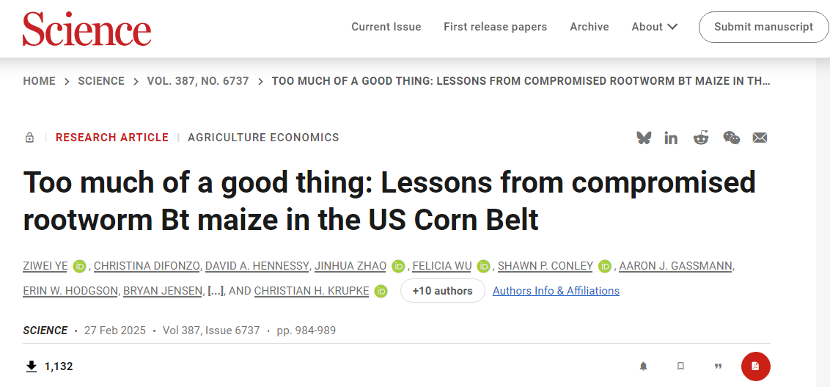
At Qingliang Mountain in Yan 'an, she participated in the "Red Path" youth faculty practice program with newly hired colleagues, experiencing the school's red gene legacy. During her tenure as a returned overseas talent at the Ministry of Agriculture and Rural Affairs, she achieved a "two-way convergence" between academic research and policy studies, "not only broadening her research perspective but also deepening her understanding of policies." She proactively pondered the differences between academia and policy and built a bridge between the two.
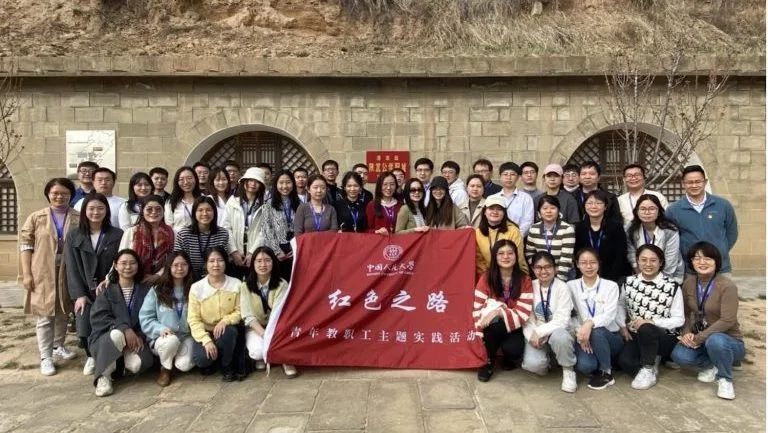
"Take my latest published article as an example. The research object involves the foreign bio-breeding corn industry, but it also echoes China's real needs. In recent years, the country is accelerating the industrialization of bio-breeding, and there are many questions to be answered about how to formulate policies and how to develop the industry."
"Teaching and learning are my goal."
In the hearts of students, the young Ye Ziwei is like a tree, both a leaf that casts shade and a branch that supports ideals.
As a teacher, Ye Ziwei teaches courses such as "Econometrics B" for undergraduates and "Environmental Value Assessment" for graduate students. The courses cover nearly 200 students from undergraduate, master's and doctoral programs. The courses are well received for their content and teaching style.
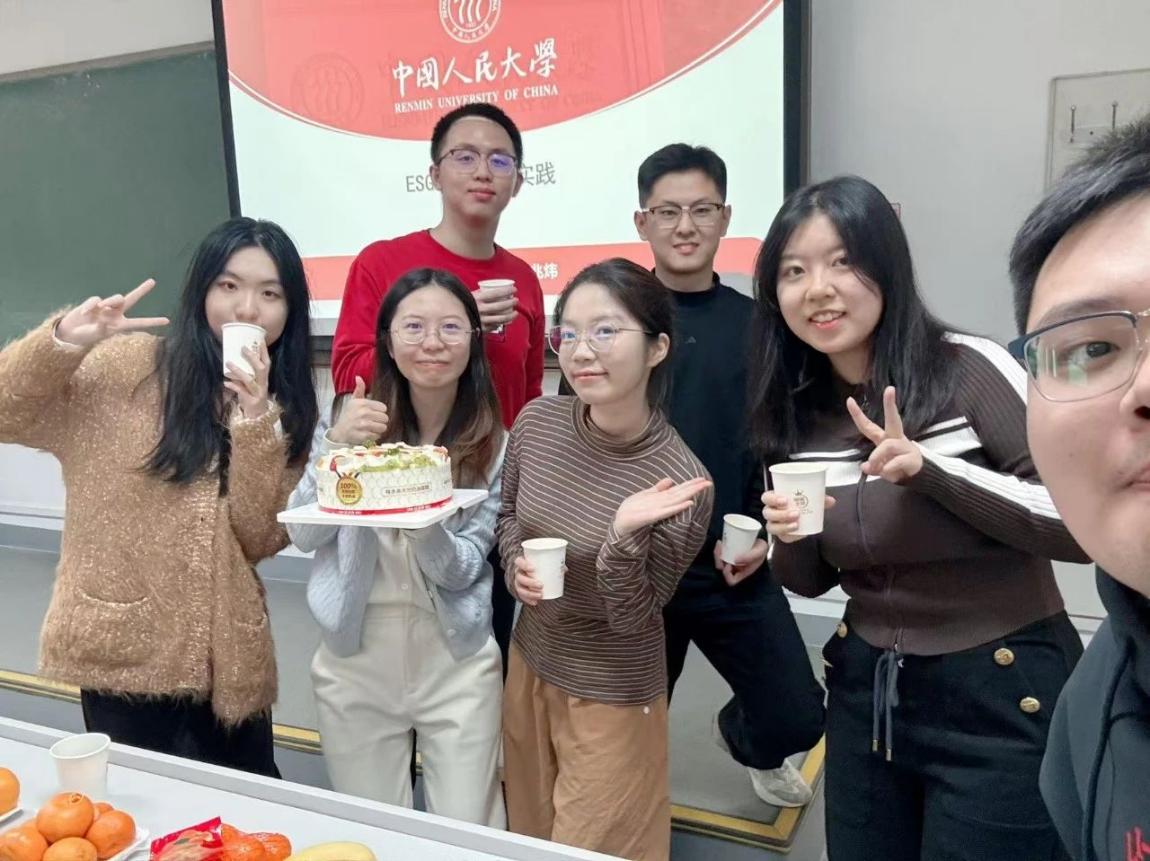
▲ Ye Ziwei is with students
Student Chen Zelin discussed the research with her at the group meeting once a week. "From the construction of theoretical framework to the selection of econometric model, Teacher Ye explained it to me in detail. When we encountered difficulties, she always gave us careful guidance and built a bridge for us to reach the other side of research."
As the head teacher of the 2023 undergraduate class of intelligent agriculture, Ye Ziwei gave comprehensive care to more than ten freshmen in the class from study to life.
At the beginning of the semester, she meticulously planned a "break-the-ice" tea party with her students; during the choir festival, she resonated with their vibrant notes; each heart-to-heart conversation etched the time spent together into unforgettable memories, ultimately condensed on a certificate titled "2024 Renmin University of China 'Model Class Collective' (Pioneer Youth League Branch)."
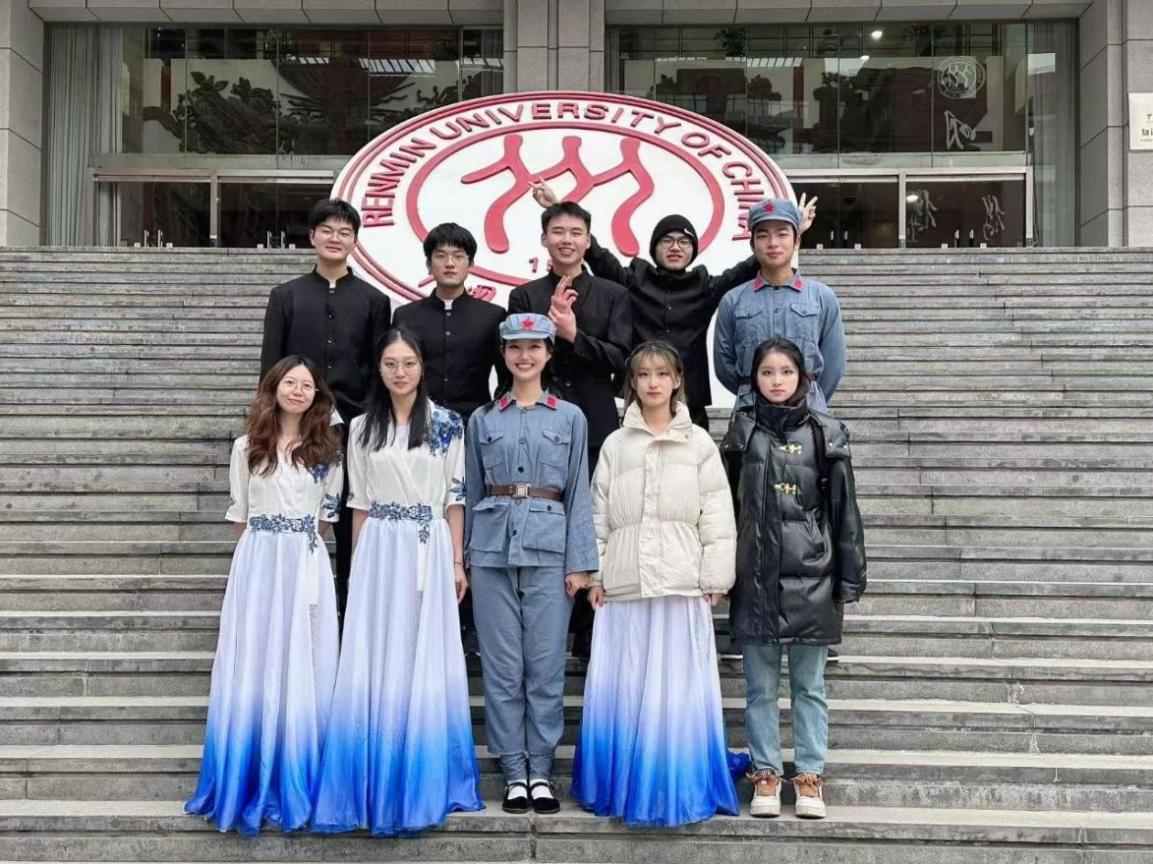
Yeziwei, who aspired to become a university teacher even during her undergraduate years, has made "mutual growth between teaching and learning" her goal after achieving this aspiration: "Cultivate students according to their characteristics, talents, and aspirations, while also enhancing my own abilities and qualities in the process. This is my understanding of the spirit of an educator."
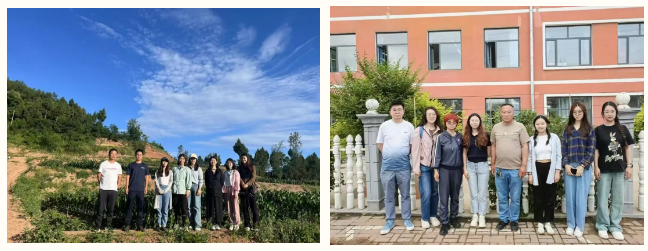
▲ Ye Ziwei conducted research in Nanchong, Sichuan province and Liaoyuan, Jilin Province
Ye ziwei, who embodies multiple roles, needs to balance teaching, research, student guidance, and practical research. However, she is never reluctant to share her learning and life experiences with her students. "In this highly diverse environment of university, one should get to know oneself, explore one's inner passion, value, and meaning."
"At RUC, Everyone Finds Their Path."
Less than three years after entering the university, Ye Ziwei is faced with multiple pressures common to young teachers, but the organized research mechanism and warm assessment method of the university make her more convinced that her choice was right.
"Teaching and research, talent cultivation, social services... The first step is to adapt and adjust oneself, maintaining a dynamic balance." On one hand, she needs to invest a lot of time in teaching and nurturing students; on the other hand, she cannot abandon her ongoing research progress. Ye Ziwei began experimenting with "intermittent research," working on her projects while on trains, planes, or even in remote corners, using her computer to squeeze in research opportunities. In the process of continuously exploring how to balance teaching and research, she completed her identity transformation and personal growth.
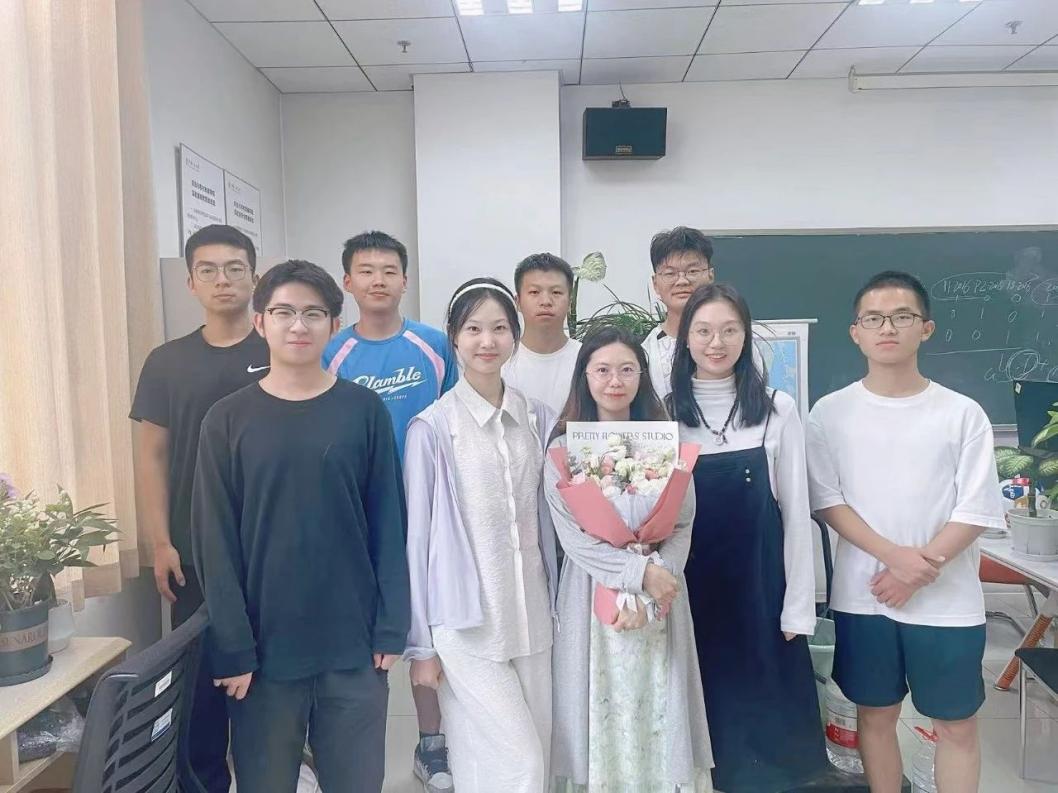
In the threshold stage full of uncertainties, in addition to her own active exploration, Ye Ziwei also received support from the school and college levels. "The school has made many institutional designs to solve this problem, providing us with more choices and tracks. Whatever you are good at and what you like to do, just focus on it."
At Renmin University, Ye Ziwei describes the teacher evaluation system at both school and college levels as "not seeking quick success" and "warm-hearted." She feels that she is not constrained by "rigid criteria." "The college advocates for teachers and students to engage in organized research in teams. Although there are certain assessment requirements, each indicator is formulated with full consideration of the characteristics of the research field and the development needs of young teachers."
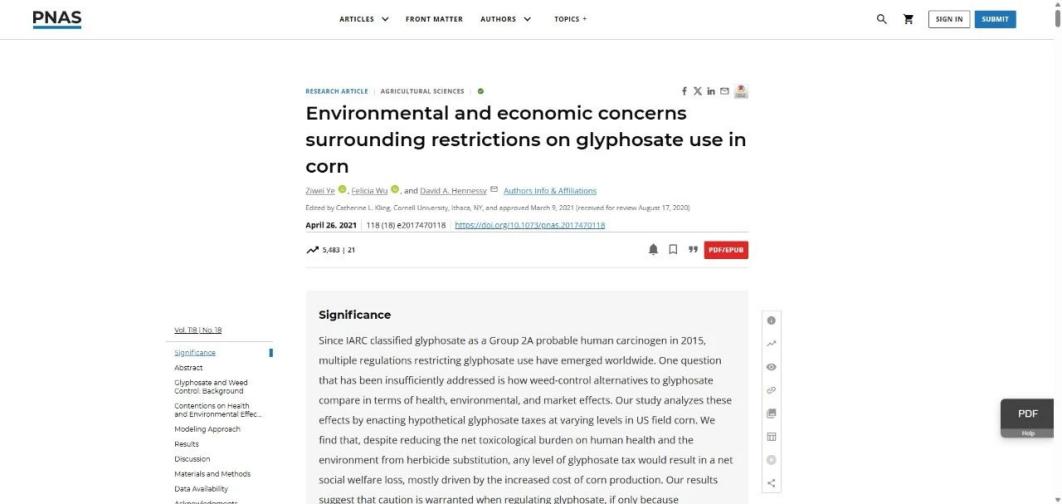
Ye ziwei is grateful to be able to pursue her academic ideals in such a "warm ecological environment." The school systematically advances educational evaluation reforms, "breaking the ’five onlys‘ and establishing new standards," and "not using the number of papers to hasten results, but instead encouraging us to delve into research like cultivating crops." This scholarly atmosphere, which respects the laws of research, allows her to apply her accumulated academic experience with local conditions, grafting it onto the rootstock of Chinese issues, patiently nurturing fruitful results that take root in Chinese soil.
Reposted from RUC WeChat Official Account

